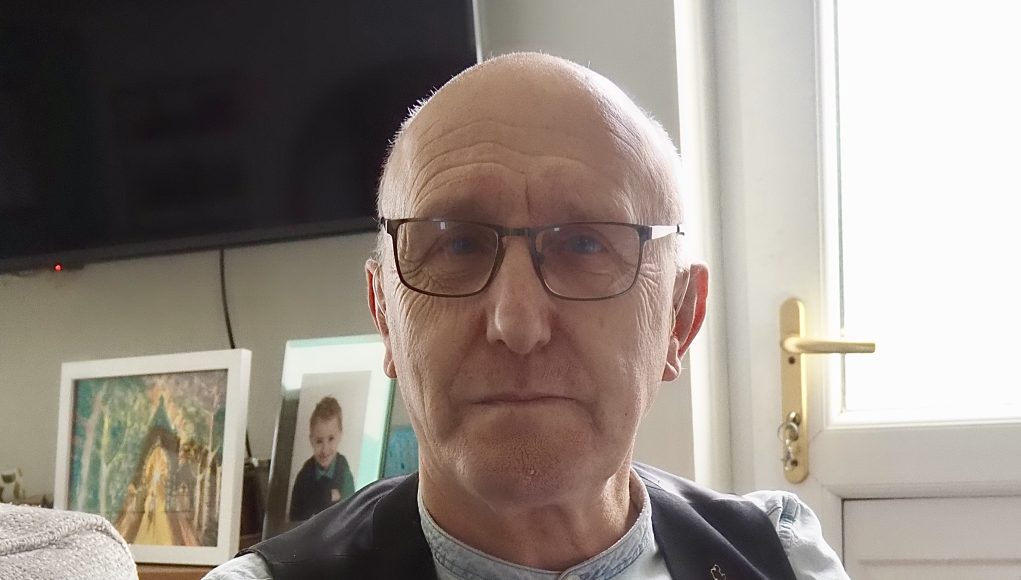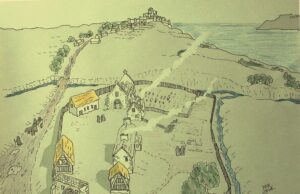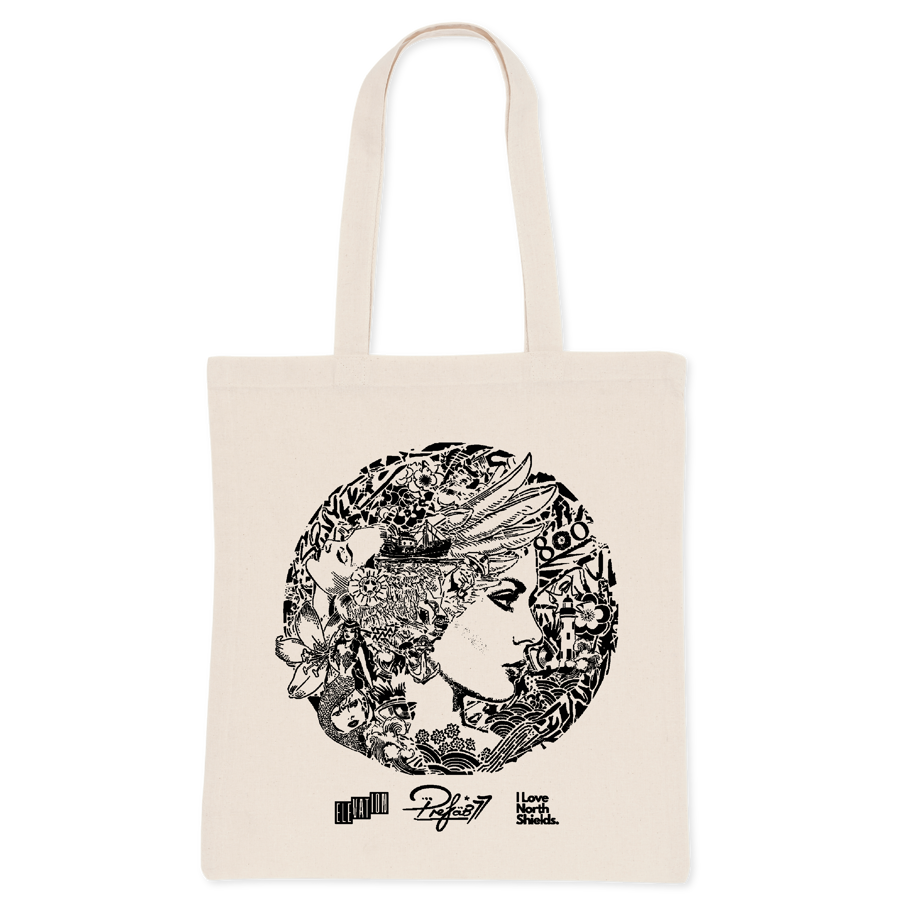Found at a car boot sale and traced back to North Shields, these lost WWI letters reveal the personal sacrifices of local men who served with the 6th Battalion.
It’s amazing what you can pick up at a car boot sale — bits of costume jewellery, box set DVDs, an old envelope stuffed with letters… it’s not always easy to spot the treasure. That was certainly the case with a bundle of yellowing papers and tattered envelopes picked up almost 10 years ago. Their true worth only came to light when they reached the hands of keen genealogist and military history enthusiast John Caffery.
John, who lives in Washington (Co. Durham, not D.C.), invited I Love North Shields to take a look at just a few of the old letters he’s been researching for eight years — and to explore their North Shields connections. Their historical significance left us speechless.
The letters were written by men who had fought with the 6th Battalion of the Northumberland Fusiliers and their families. Some were sent from the trenches, with soldiers trying to reassure their loved ones back home. Others came later, from grieving widows and parents. They were originally collected in 1921 as material for a book about the battalion’s actions during the Great War. Sadly, the book was never completed — and the letters appeared to be lost, only to resurface nearly a century later at a car boot sale.
When I visited John, his dining room table was piled high with the results of years of research to uncover who these men were and what became of them. John told me how important it is that we remember these young soldiers and what they endured:
“It’s so important that we don’t forget our history.”
I was particularly drawn to the letters and papers relating to seven members of the 6th Battalion who came from North Shields and Tynemouth:
- William John Black – Marmion House, Cleveland Road, North Shields
- Norman McLeod Dryden – 6 Front Street, Preston, North Shields
(Wounded at the Battle of St. Julien and died of meningitis, November 1915) - George Stephenson Gray – 32 Howard Street, North Shields
- Thomas Turner Peak – 86 Prudhoe Street, North Shields
- Robert Frederick Flisher – 14 Argyle Street, Tynemouth
- Herbert Walter Holmes – Back Shipley Road, Tynemouth
(Died of wounds on 10th May 1915 in Boulogne) - William Thomas Liddell – 24 Percy Avenue, Cullercoats
One letter, in particular, caught my eye.
William John Black was 25 when the 6th Battalion — made up entirely of volunteers — sailed to France. The crossing was calm, and the men expected to spend a few weeks training before seeing any action. But there had been heavy fighting near Yprés in Belgium, following the first use of chlorine gas by German forces, and reinforcements were urgently needed. Just six days later, on 26th April 1915, the battalion found itself advancing toward the village of St. Julien under intense fire. Their losses were dreadful, with almost half the battalion killed or wounded.
Three days later, William sat in a trench and took several small sheets of paper and a pencil from his pack. In steady, neat handwriting, he wrote home to his father in Cleveland Road, North Shields:
29th April 1915
Dear Father,
I am sitting here in the open trench where we have been since we came out of action. With reference to the action, it appears we went to support and reinforce the cream of British and Scotch Regiments in the first line of trenches close up to the Germans. We came under artillery fire first, and then machine gun and rifle fire — and how on earth any of us got there alive beats me. Nevertheless, some of us managed it…
I do not think anybody disgraced the good reputation of the Sixth, and I can assure you that when poor old Capt. Dryden comes back to join the Company, he will get one of the finest receptions ever accorded a British officer rejoining his regiment, for the magnificent and glorious manner in which he led us prior to being shot down.
Of course, we were all naturally a little put out when we arrived in the trenches we were to reinforce, as there appeared to be so few of us left. Our casualties may appear large at present, but the bulk of our men are only slightly wounded…
I understand we have been congratulated in Divisional Orders by the Canadian General, and if all rumours be correct, we will be mentioned in dispatches. So I think we have done our little bit for old England and are still prepared to do more if necessary.
I now have left 1 razor, knife, fork and spoon, 1 towel and a piece of soap… I think Joe can get me some baccy as he knows what kind to get, but you might get some matches from Sinclair’s in Newcastle — specially packed in tin cases, ready for immediate despatch to the front.
I am still fit and well and in no way have felt the strain of the last few days. Of course, I was a bit nervy — the big Jack Johnsons* are not very pleasant things to come in contact with, as they are no respecter of persons. So we dodge into our funk holes and treat them with silent contempt…
I will keep you posted with my doings as often as possible. With best love to all at home.
Your loving son,
Billie
(*“Jack Johnson” was the nickname given by Allied soldiers to the German 150mm howitzer shell.)
William’s luck eventually ran out in 1917 when he suffered gunshot wounds to his left knee. He was discharged from military service that July and returned home to North Shields. He later married and worked as an accountant for Tynemouth Corporation. He died in August 1975, aged 85, and was buried in Preston Cemetery.
The letters, discovered by chance and almost lost to time, provide a unique insight into the lives and thoughts of ordinary young men living through extraordinary events. The care and dedication that John has shown in researching each soldier’s story is remarkable — and honours the sacrifices they made. These letters are an important historical record, and they are now set to be donated to the Northumberland Fusiliers Museum at Alnwick Castle for safekeeping.
If you’d like to find out more, you can hear about the letters in two audio podcasts by Hive Storytellers, with a third episode due for release on 11th November 2025:














